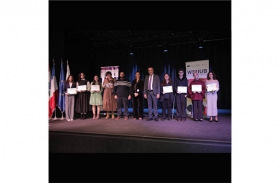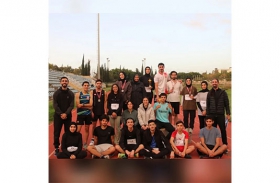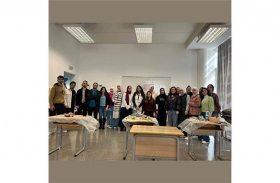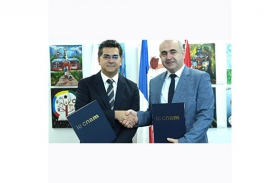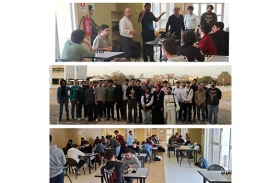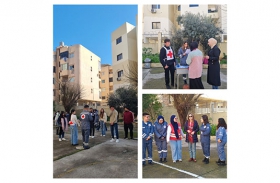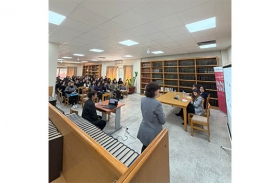
The Faculty of Agronomy - official member of IUCN
In a move that strengthens Lebanon's academic and environmental position on the international scene, Fadi Ghanem, President of the National Committee of the International Union for Conservation of Nature (IUCN) in Lebanon, announced that the Faculty of Agronomy has officially joined the Union.
The announcement was made during a meeting between Ghanem and President Bassam Badran at the Central Administration Building – Museum, in the presence of the Dean of the Faculty of Agronomy, Dr. Nadine Nassif, the Dean of the Faculty of Information, Dr. Jocelyne Nader, the Director of the Faculty of Fine Arts & Architecture - Branch 2, Dr. Bernard Ghoussoub, the Head of the Department of Basic Sciences at the Faculty of Agronomy, Dr. Ali Msheik, and the Advisor to the President of the University, Dr. Ali Rammal.
Ghanem reviewed the history of the Union and the role of the National Committee in Lebanon, stressing the importance of strengthening academic partnerships within the framework of global environmental policies, especially in light of pressing climate and environmental challenges. He praised the pioneering role of the Lebanese University and its president, Dr. Badran, noting the university's constructive openness to international cooperation and sustainable development initiatives.
President Badran affirmed that, despite the challenges, the Lebanese University continues to fulfill its national, developmental and scientific role and supports all initiatives that strengthen Lebanon's presence in international environmental institutions.
Dean Nassif praised this achievement and Mr. Ghanem's efforts, considering that the Faculty of Agronomy's membership in the Union is the culmination of a long history of academic and research work and community service, opening new horizons for scientific cooperation at the regional and international levels.
This membership is international recognition of the pivotal role played by the Faculty of Agronomy in the fields of agricultural education, applied scientific research, and community service, in addition to its contribution to supporting rural development, managing environmental systems, and enhancing food security.
 LU Services
LU Services
 League of Retired Professors
League of Retired Professors
 News
News
 Vacancies
Vacancies
 International Relations
International Relations
 Contact Us
Contact Us
 Email
Email









